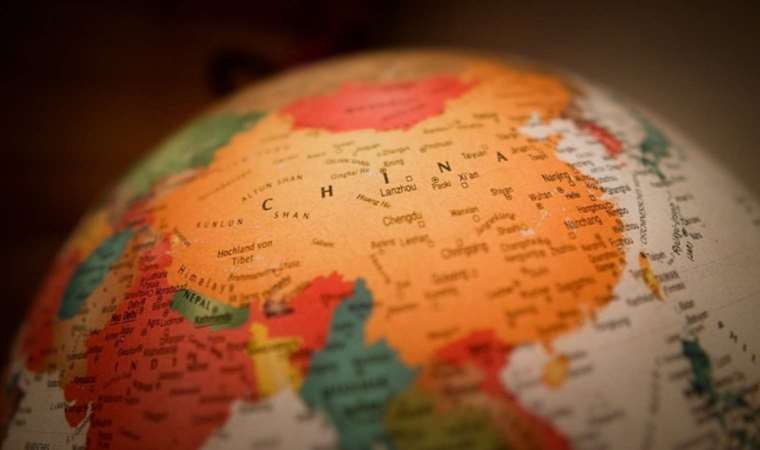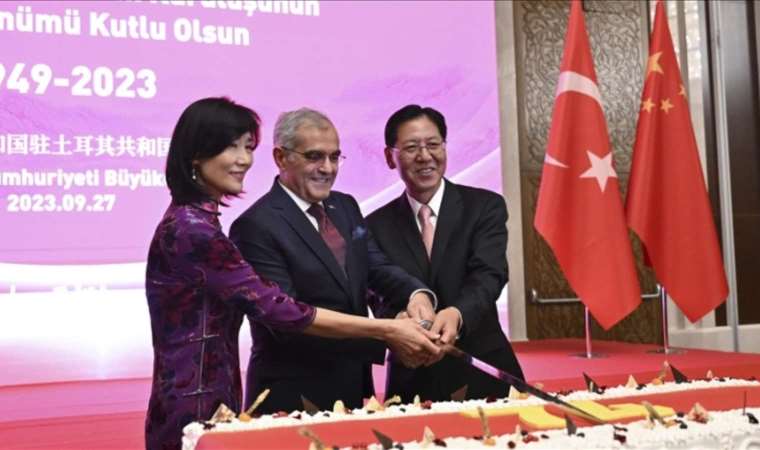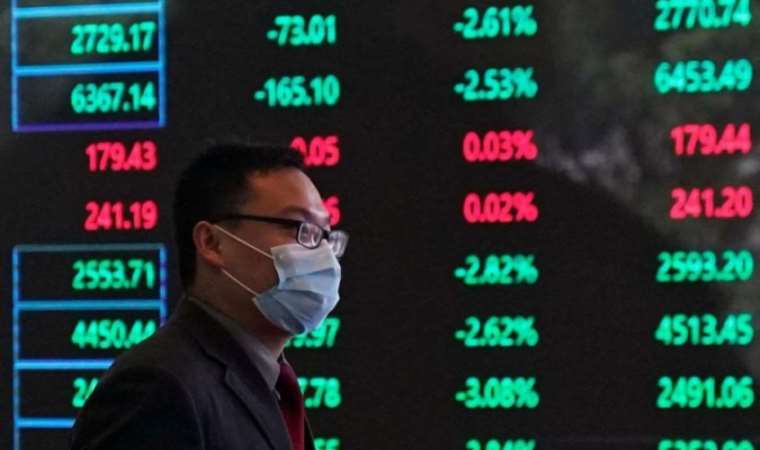Heeding the Dragon: China's Stride Towards Hegemony and Ecological Leadership
Ergin Yıldızoğlu

In recent years, discussions surrounding the dynamics of U.S. hegemony in the imperialist system, encompassing concepts like decline, restoration, and empire, have brought forth new realms of influence: hegemony and "ecological superiority."
Two Key Concepts
"Hegemony" characterizes a nation's ability to guide another country's internal and external economic, political, and, at times, military inclinations without resorting to force. This capacity hinges on a unique relationship: gaining consent for leadership while holding the potential for forceful intervention. Leadership emanates from setting an appealing precedent, offering pragmatic solutions (i.e. rules, models, markets, or resources) to economic and political dilemmas within the hegemonic sphere, and articulating a discourse that legitimizes this "hegemonic order." The potential for military intervention is also tied to unrivalled military prowess.
Conversely, "ecological superiority" denotes a structure, such as "a," within a system (e.g., imperialism), exerting a more potent influence on the progressions of other structures, like "b, c, d, ..." than the reverse.
In recent years, China has embarked on establishing hegemony in certain domains and asserting "ecological superiority" in others.
Economic Foundations Hold Significance
China stands as the world's largest economy by some metrics and second-largest by others. It leads in manufacturing, producing goods valued at $6.24 trillion (compared to the U.S. at $3.7 trillion and the EU at $3.1 trillion). The nation displays the most rapid growth in R&D expenditures and claims the largest share of global exports.
Excluding the U.S. and Japan, virtually all prominent industrialized and emerging market nations have witnessed a steady surge in imports from China over the past six years. China constitutes roughly 20 per cent of the total imports from European countries.
Exports from Germany to China amount to 3 per cent of its GDP. The earnings of German companies in China equate to 6 per cent of Germany's GDP. China's investments in Europe from 2020 to 2022 surpass $26 billion across at least ten countries, encompassing ventures like port infrastructure development, electrical grid enhancement, and submarine communication cable installations.
In 2019, China imported over $70 billion worth of semiconductor (electronics) products from U.S. manufacturers, accounting for 37 per cent of the sector's global sales. China serves as the principal lender to developing countries in all regions, excluding Europe and Central Asia, and ranks as the largest creditor for numerous developing nations.
China dominates the extraction and processing of 13 metals and minerals crucial for high-tech, microchip, and green energy technologies. This dominance extends to computing, artificial intelligence, quantum computing, and space technologies.
Moreover, China has established its own BeuiDou global navigation system, rivalling the Western GPS with a more efficient and precise network featuring 45 satellites, in comparison to GPS's 31.
Notably, recent estimations by the EU defence ministry suggest China's defence budget has surged to $700 billion, approaching the levels of the United States.
China retains a significant role in the worldwide arms market. Beyond conventional armaments, China is pioneering intricate weapon systems, including ballistic missiles and hypersonic weapons. Its arms exports align with China's political and economic sway, primarily concentrated in Asia and Africa, with Venezuela as a noteworthy client.
Drawing on its historical struggle against colonialism and its subsequent military, economic, and ideological backing for countries combating it, China is amplifying its political and cultural sway, particularly in African nations.
In contrast to the West's imposing and oppressive tradition, China is luring these countries into its sphere of influence by proffering egalitarian, unifying relations supported by economic and financial prospects and investments in infrastructure.
For the first time in history, Western media based in the U.S. acknowledges the erosion of influence spheres in the so-called "Global South."
In this discourse, China emerges as the victor. This, combined with the preceding points, signals the emergence of a fresh hegemonic sphere within the imperialist system.

En Çok Okunan Haberler
-
 Savunma sanayi firmalarının ürünleri, Din dersinde!
Savunma sanayi firmalarının ürünleri, Din dersinde!
-
 Akşener'den kurultayda 'veda' konuşması
Akşener'den kurultayda 'veda' konuşması
-
 Hazine ve Maliye Bakanlığı’ndan KDV zammı
Hazine ve Maliye Bakanlığı’ndan KDV zammı
-
 Arda Güler ilk 11 çıktı ve golünü attı!
Arda Güler ilk 11 çıktı ve golünü attı!
-
 Seçim ikinci tura kaldı
Seçim ikinci tura kaldı
-
 Kadınlara 'Cehennemde yanacaksınız' diye bağırdı
Kadınlara 'Cehennemde yanacaksınız' diye bağırdı
-
 Serdar Aziz'den flaş paylaşım!
Serdar Aziz'den flaş paylaşım!
-
 Nihat Kahveci'den Süper Lig iddiası
Nihat Kahveci'den Süper Lig iddiası
-
 Korhan Berzeg olayında yeni gelişme
Korhan Berzeg olayında yeni gelişme
-
 'Türkiye ilk etkilenenlerden olacak...’
'Türkiye ilk etkilenenlerden olacak...’




















